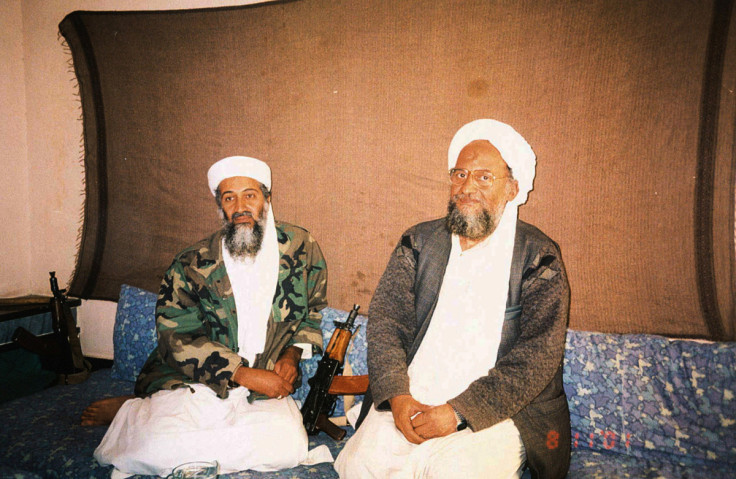Biden: Al Qaeda leader Zawahiri killed in U.S. strike in Afghanistan
Al Qaeda leader Ayman al-Zawahiri was killed in a U.S. strike in Afghanistan over the weekend.

Al Qaeda leader Ayman al-Zawahiri was killed in a U.S. strike in Afghanistan over the weekend, President Joe Biden said on Monday, the biggest blow to the militant group since its founder Osama bin Laden was killed in 2011.
Zawahiri, an Egyptian surgeon who had a $25 million bounty on his head, helped coordinate the Sept. 11, 2001, attacks that killed nearly 3,000 people.
U.S. officials, speaking on the condition of anonymity, said the United States carried out a drone strike in the Afghan capital Kabul on Sunday morning at 6:18 a.m. local time.
"Now justice has been delivered, and this terrorist leader is no more," Biden said in remarks from the White House. "We never back down."
U.S. intelligence determined with "high confidence" that the man killed was Zawahiri, a senior administration official told reporters. No other casualties occurred.
"Zawahiri continued to pose an active threat to U.S. persons, interests and national security," the official said on a conference call. "His death deals a significant blow to al Qaeda and will degrade the group's ability to operate."
There were rumors of Zawahiri's death several times in recent years, and he was long reported to have been in poor health.
His death raises questions about whether Zawahiri received sanctuary from the Taliban following their takeover of Kabul in August 2021. The official said senior Taliban officials were aware of his presence in the city.
The drone attack is the first known U.S. strike inside Afghanistan since U.S. troops and diplomats left the country in August 2021. The move may bolster the credibility of Washington's assurances that the United States can still address threats from Afghanistan without a military presence in the country.
In a statement, Taliban spokesman Zabihullah Mujahid confirmed that a strike took place and strongly condemned it, calling it a violation of "international principles."
Zawahiri succeeded bin Laden as al Qaeda leader after years as its main organizer and strategist, but his lack of charisma and competition from rival militants Islamic State hobbled his ability to inspire spectacular attacks on the West.
Until the U.S. announcement, Zawahiri had been rumored variously to be in Pakistan's tribal area or inside Afghanistan.
A video released in April in which he praised an Indian Muslim woman for defying a ban on wearing an Islamic head scarf dispelled rumors that he had died.
The senior U.S. official said finding Zawahiri was the result of persistent counterterrorism work. The United States identified this year that Zawahiri's wife, daughter and her children had relocated to a safe house in Kabul, then identified that Zawahiri was there as well, the official said.
"Once Zawahiri arrived at the location, we are not aware of him ever leaving the safe house," the official said. He was identified multiple times on the balcony, where he was ultimately struck. He continued to produce videos from the house and some may be released after his death, the official said.
In the last few weeks, Biden convened officials to scrutinize the intelligence. He was updated throughout May and June and was briefed on July 1 on a proposed operation by intelligence leaders. On July 25 he received an updated report and authorized the strike once an opportunity was available.
A loud explosion echoed through Kabul early Sunday morning.
"A house was hit by a rocket in Sherpoor. There were no casualties as the house was empty," Abdul Nafi Takor, spokesman of the interior ministry, said earlier.
One Taliban source, requesting anonymity, said there had been reports of at least one drone flying over Kabul that morning.
With other senior al Qaeda members, Zawahiri is believed to have plotted the October 12, 2000, attack on the USS Cole naval vessel in Yemen which killed 17 U.S. sailors and injured more than 30 others, the Rewards for Justice website said.
He was indicted in the United States for his role in the August 7, 1998, bombings of the U.S. embassies in Kenya and Tanzania that killed 224 people and wounded more than 5,000 others.
Both bin laden and Zawahiri eluded capture when U.S.-led forces toppled Afghanistan's Taliban government in late 2001 following the Sept. 11 attacks on the United States.
Copyright Thomson Reuters. All rights reserved.





















